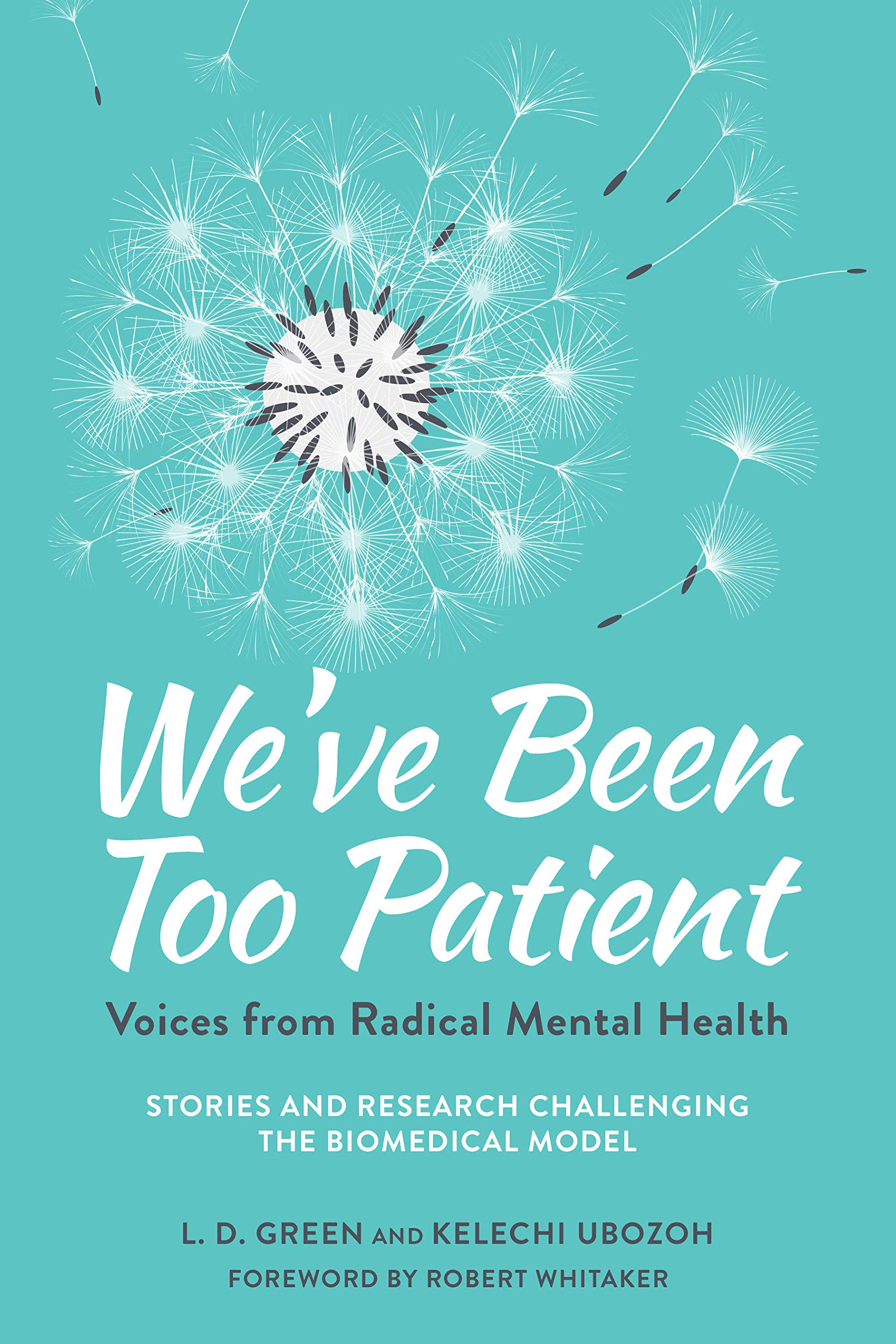We’ve Been Too Patient

Full Title: We've Been Too Patient: Voices from Radical Mental Health--Stories and Research Challenging the Biomedical Model
Author / Editor: L. D. Green and Kelechi Ubozoh (editors)
Publisher: North Atlantic Books, 2019
Review © Metapsychology Vol. 25, No. 22
Reviewer: Michelle Joy, M.D.
As I read We’ve Been Too Patient: Voices from Radical Mental Health, I had many urges. I wanted to sit with each author, tell them I understand. Part of the desire was protective, I, a psychiatrist, understand. I can’t be as bad as all this, I actively try not to be.
But then again part of my desire was to share. To divulge and open and tell about my own traumas, those of my family, those of my friends. Again, is this about me, no? But like I practice, self-disclosure can be healing if done with the intent of helping others instead of the self, particularly when in a position of power. L.D. Green tells us just how powerful that can be (“We’ve Been Too Patient*”, 58).
I wanted to give the book to all psychiatrists – have them read it. But even more, I want them to listen to the stories inside, to feel its message. To say, I know. I worry, though. I worry that our field is too hierarchical, is too defensive, is too focused on guild mentality and self-aggrandizement to truly hear. Would they pathologize the authors, their insights and dangerous gifts, scouring for what diagnoses lie behind these powerful voices? I imagine many would, some wouldn’t. Others would focus on their licenses if they were to practice in the myriad ways discussed.
But we, we are the trauma. Even when trauma-informed care is practiced, or attempted, the psychiatric industry rarely looks inward to see itself as a locus of hurt. Maybe some meds, maybe some hospitalizations, but all in pursuit of the greater good, it thinks. Self-reflection is required of the effects, as the text shows, of our hospitalizations, hierarchies, and inherent harms. But the book shows there is a better way, nay, better ways. From meditation to spirituality, writing to compassion, friends to peers, We’ve Been Too Patient shows us exactly what those ways can be. No one approach will fit for all either, but empowerment lies behind each.
As I read, I wanted to change systems. I thought about how important it is to have radical voices in positions where they can advocate for de- and reconstruction. Because I fear the system is too entrenched in itself to be other without such radical intervention. How do we apply a recovery lens to an industry that rarely incorporates it in even minimal ways?
But in the meantime, the book is powerful. I will have it on my shelf, speak of it to patients, colleagues, and students. I will lend it, I’m sure, buy it for some. I hope it’s ideas seep out and inspire. I lament that right now it has to stand as what Leah Harris would call a new chart, a secondary anthropology to the dominant narrative of the very system (“dear dr”, 14). Like the dandelion narrative that pops up throughout the book – the content and meaning of my weedy left hip tattoo – the stories within can serve as roots for something better. I hope the book can be some conduit for change, and I will elevate its message.
Michelle Joy, M.D., Philadelphia
Keywords: radical psychiatry, biomedical psychiatry
